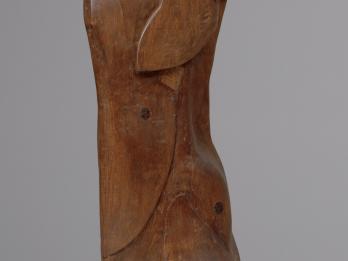The Vision of the Lampstand and Olive Trees
Zechariah 4:1–14
Persian Period, Late 6th–4th Century BCE
1The angel who talked with me came back and woke me as a man is wakened from sleep. 2He said to me, “What do you see?” And I answered, “I see a lamp-stand all of gold, with a bowl above it. The lamps on it are seven in number, and the lamps above it have seven pipes; 3and by it are two olive trees, one on the right of the bowl and one on its left.” 4I, in turn, asked the angel who talked with me, “What do those things mean, my lord?” 5“Do you not know what those things mean?” asked the angel who talked with me; and I said, “No, my lord.” 6Then he explained to me as follows:a
“This is the word of the Lord to Zerubbabel:b Not by might, nor by power, but by My spiritc—said the Lord of Hosts. 7Whoever you are, O great mountain in the path of Zerubbabel, turn into level ground! For he shall produce that excellent stone; it shall be greeted with shouts of ‘Beautiful! Beautiful!’”
8And the word of the Lord came to me: 9“Zerubbabel’s hands have founded this House and Zerubbabel’s hands shall complete it. Then you shall know that it was the Lord of Hosts who sent me to you. [ . . . ]
“Those seven are the eyes of the Lord, ranging over the whole earth.”
11“And what,” I asked him, “are those two olive trees, one on the right and one on the left of the lampstand?” 12And I further asked him, “What are the two tops of the olive trees that feed their gold through those two golden tubes?” d 13He asked me, “Don’t you know what they are?” And I replied, “No, my lord.” 14Then he explained, “They are the two e-anointed dignitaries-ewho attend the Lord of all the earth.”
Notes
The explanation is given in the last sentence of v. 10.
A grandson of King Jehoiachin and the secular head of the repatriated community.
I.e., Zerubbabel will succeed by means of spiritual gifts conferred upon him by the Lord.
Or “funnels”; through them the oil runs from the olive trees into the bowl of vv. 2 and 3.
I.e., the high priest and the king; lit. “sons of oil.”
Credits
Published in: The Posen Library of Jewish Culture and Civilization, vol. 1.



